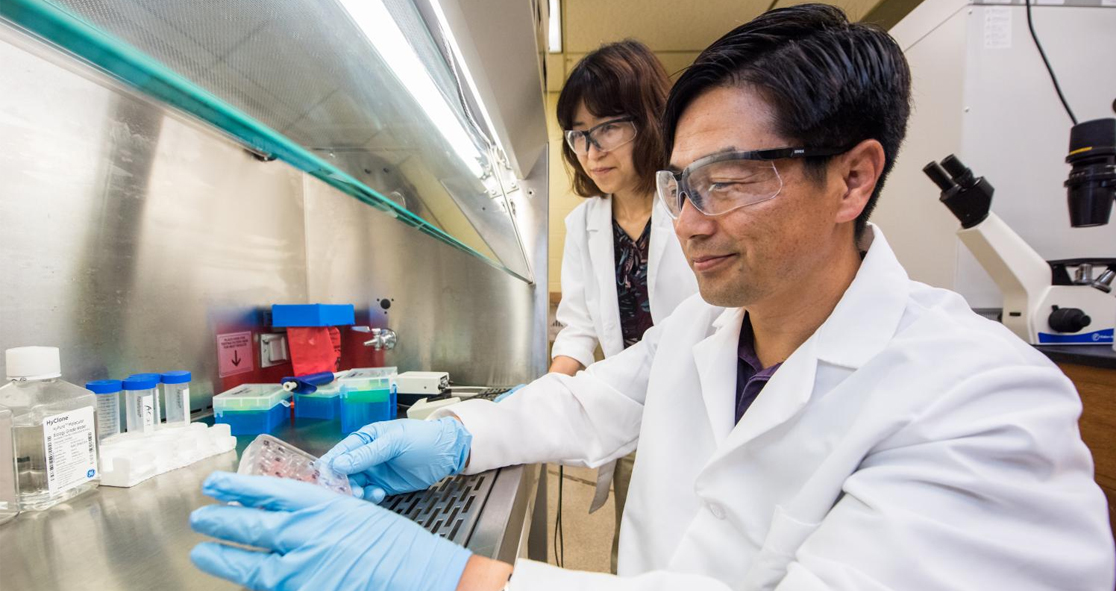Virologists Yunjeong Kim and Kyeong-Ok “KC” Chang from the College of Veterinary Medicine at Kansas State University have released a study that shows a possible drug treatment for COVID-19, the infection caused by the novel coronavirus.
Coronaviruses have become a major public health threat, such as severe acute respiratory syndrome coronavirus (SARS-CoV-1), Middle East respiratory syndrome coronavirus (MERS-CoV), and the recently emerged SARS-CoV-2, the virus that causes COVID-19.
The study, “3C-like protease inhibitors block coronavirus replication in vitro and improve survival in MERS-CoV-infected mice,” was published recently in the medical journal Science Translation Medicine.
The researchers revealed how protease inhibitors show potency against coronaviruses. The 3C-like proteases (3CLpro) are strong therapeutic targets as they play a key role in the replication of the coronavirus.
Chang said, “Vaccine developments and treatments are the biggest targets in COVID-19 research, and treatment is really key. This paper describes protease inhibitors targeting coronavirus 3CLpro, which is a well-known therapeutic target.”
The study found that 3CLpro inhibitors blocked replication of the coronaviruses – MERS-CoV and SARS-CoV-2 – in cultured cells and in animal studies, suggesting that these compounds should be studied further as a potential therapeutic for the coronavirus infection.
Kim and Chang have been working with the National Institutes of Health (NIH) to develop antiviral drugs to treat MERS, human norovirus infections, rhinoviruses, and SARS-CoV-2.
Peter Dorhout, Vice President for Research Professor of Chemistry at Kansas State University, said, “The work that this group of collaborators has been doing on antivirals and inhibitors for SARS and MERS at K-State for a number of years has been vital to their ability to quickly pivot to emphasize research on SARS-CoV-2 virus and therapeutics.”
The study also included lead researcher Bill Groutas of Wichita State University, Stanley Perlman of the University of Iowa, and Scott Lovell of the University of Kansas.
Chang said, “Drs. Groutas, Perlman, and Lovell brought decades of experience to our research team. We would not have been able to come this far without important collaborations with our colleagues at other institutions.” “Getting things published right now is very important for the scientific community,” Kim said. “I think we are adding valuable information to the antiviral field.”























